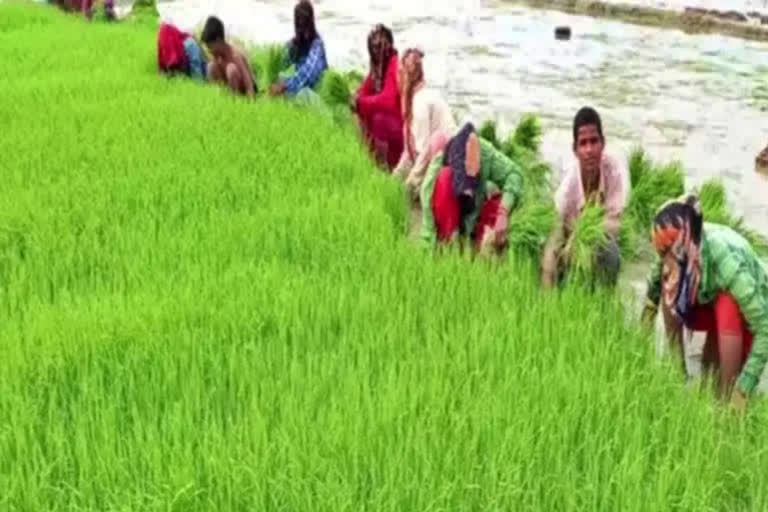Solan (HP): Farmer Prem, who grew cabbage in Himachal Pradesh's Solan district, faced a grim reality when he had to pay Rs 400 more than the selling price for transporting his produce. Prem had to sell his agricultural produce for Rs 1400 when the transportation cost him Rs 1800.
The story of Prem is indicative enough that despite the government's claim of introducing schemes for the welfare of farmers, the agricultural workers are struggling to earn a decent income. They spend more on transportation than they can earn from the selling their agricultural products.
Prem carried 25 bags of cabbage, which he sold for around Rs 60 each bag, equivalent to Rs 2.5 per kilo. However, the selling price of the crop did not cover the expenses of harvesting, washing, and transportation. This highlights the financial burden that farmers face in the region.
Hill cabbage was sold for Rs 4 per kilo, while cabbage from Haryana was sold for Rs 5 per kilo, and the local produce was sold for just Rs 2 per kilo. The farmers expressed their concerns over the unfair pricing of their crops, especially when compared to crops grown on planes. When Peas grown in Maharashtra and Punjab were sold at around Rs 15 per kilo, the price of peas grown in Himachal earned a meagre return.
Also read: BJP govt at Centre, Haryana have taken 'farmer-friendly' decisions: Khattar
Farmer Prakash spent Rs 2,000 on transporting his cabbage to the market, only to sell it for a meagre price of Rs 2 per kilo, which he referred to as a "throwaway price." This clearly demonstrates the dire financial situation of farmers in the region.
The farmers have requested assistance from the government to help them earn a reasonable profit from their crops instead of spending more money to sell their produce. The government needs to address this issue to ensure that farmers in the region are not burdened with additional expenses, and they can earn a decent livelihood from their hard work. It is essential to create policies that support farmers and promote fair pricing for their crops. This will not only benefit the farmers but also contribute to the overall development of the agricultural sector in the region.




